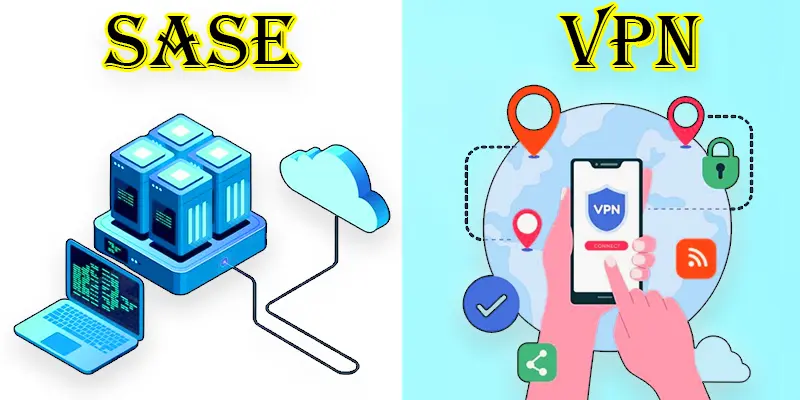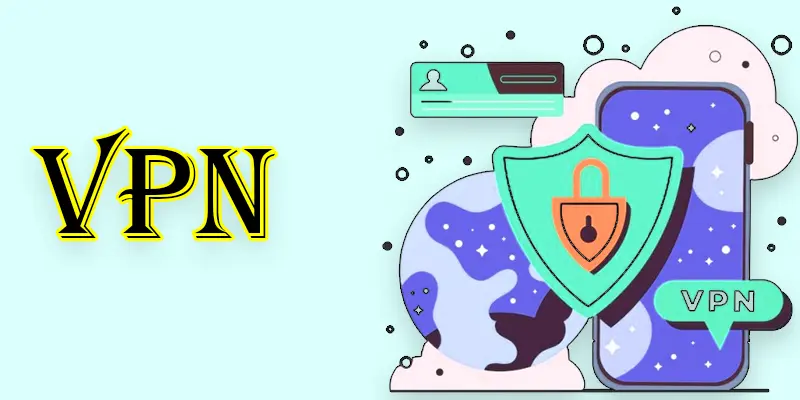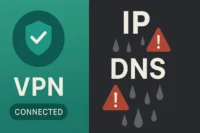VPN vs SASE: Clear Differences You Should Know
Published: 31 Jan 2025
SASE vs VPN
Many businesses rely on VPNs for secure access, but with slow speeds and security risks, is it still the best choice? SASE (Secure Access Service Edge) offers a modern alternative, but how does it compare? Choosing between SASE and VPN can be confusing, especially when both promise security. As more businesses move to the cloud, finding the right solution is more important than ever.
What is SASE and VPN?
SASE (Secure Access Service Edge) is a cloud-based solution that merges networking and security, ensuring safe access for remote users. VPN (Virtual Private Network) encrypts internet traffic to provide secure remote access. While VPNs focus on private connections, SASE offers advanced security and better performance for modern businesses.
What is the Difference Between SASE and VPN?
The main difference between SASE and VPN is how they handle security and remote access. VPN encrypts internet traffic to create a secure private connection, while SASE combines cloud-based security and networking for better performance and scalability. SASE is ideal for modern businesses, while VPN works best for basic remote access.

| SASE | VPN |
|---|---|
| SASE or (Secure Access Service Edge). | VPN or (Virtual Private Network). |
| A modern cloud-based solution combining networking and security. | A service that encrypts your internet connection for secure access. |
| Provides both security and network access for remote users. | Provides secure internet connections by masking your IP. |
| Uses multiple security features like Zero Trust and firewalls. | Primarily focuses on encrypting internet traffic. |
| Built for cloud environments, supporting remote work globally. | Doesn’t rely on the cloud, often uses dedicated servers. |
| Optimizes performance by managing traffic in the cloud. | Can slow down speeds due to server connections. |
| Easily scales with business growth without complex setup. | Limited scalability, especially for larger organizations. |
| Includes Zero Trust, Firewall as a Service, etc. | Types include Remote Access VPN, Site-to-Site VPN, etc. |
| Requires initial setup but simplifies ongoing management. | Setup is straightforward but needs regular manual configuration. |
| Designed for businesses with multiple locations or remote teams. | Best for individuals or small teams needing simple remote access. |
| Generally higher due to advanced features and flexibility. | More affordable for small businesses and personal use. |
| Uses advanced protocols like ZTNA (Zero Trust Network Access). | Uses basic encryption protocols like IPsec or SSL. |
| Provides better performance by reducing latency with cloud resources. | Performance can suffer due to reliance on external servers. |
| Typically includes multi-factor authentication for added security. | Relies on username and password, often with less protection. |
| High reliability as it uses multiple cloud providers. | Can be less reliable depending on the server connection. |
| Dynamically manages traffic to optimize for both security and performance. | Traffic management is limited to encrypted connections only. |
| Ideal for businesses with a hybrid or fully remote workforce. | Works well for small teams or individuals needing access to a private network. |
| Supports a wide range of devices and applications seamlessly. | Mainly compatible with devices that support VPN clients. |
| Prevention Includes features to prevent data loss across devices. | Doesn’t offer data loss prevention features. |
| Provides advanced monitoring, reporting, and threat detection. | Basic logging and monitoring features. |

Conclusion about VPN and SASE
VPNs offer basic security for remote access, but SASE provides a more comprehensive, cloud-based solution that enhances both security and performance. Businesses looking for scalable, high-performance security will benefit from SASE, and VPN remains a reliable choice for simpler needs. Choose the right option based on your business size and remote access requirements. Ready to secure your remote work environment? Explore SASE and VPN solutions today.
FAQS – SASE VPN
SASE can be a better option for businesses needing a comprehensive cloud-based solution that enhances both security and performance.
Paid VPNs offer stronger encryption, better performance, and reliable customer support compared to free, personal VPNs.
SASE is better for modern businesses with remote work needs, offering enhanced security, scalability, and performance over traditional VPNs.
Zero Trust Network Access (ZTNA) is an alternative that offers more robust security by continuously verifying user access rather than relying on a secure connection.
SASE is not entirely replacing VPNs but is becoming the preferred choice for businesses with complex, cloud-based security needs.
Yes, small businesses can afford SASE, as there are flexible, scalable plans designed to meet their budget and security requirements.

- Be Respectful
- Stay Relevant
- Stay Positive
- True Feedback
- Encourage Discussion
- Avoid Spamming
- No Fake News
- Don't Copy-Paste
- No Personal Attacks

- Be Respectful
- Stay Relevant
- Stay Positive
- True Feedback
- Encourage Discussion
- Avoid Spamming
- No Fake News
- Don't Copy-Paste
- No Personal Attacks





